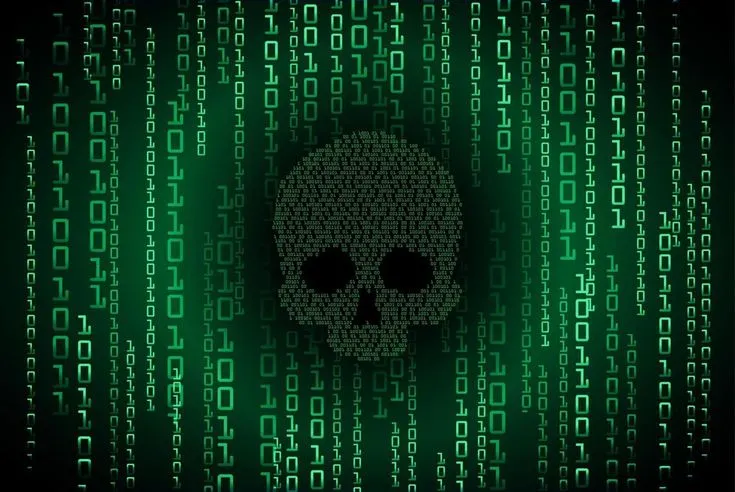Cybersecurity now seems to be more important than it has ever been. Hackers continue to improve their techniques, and so the outlook for vigilance and proactiveness is paramount for individual entities and organizations.
With more of us doing our banking and other financial transactions online nowadays, we really need to make sure that we do all we can to prevent thieves from stealing our personal information. We spoke to a professional “ethical” hacker, who hacks into clients’ websites, networks and phone applications for a living. He gave us his top tips to make sure you don’t fall victim to theft.
Table of Contents
Here are 14 tips to help keep one safe from hackers and thus protect valued information.
Our feelings are the enemy
The majority of modern-day breaches incorporate an element of something known as social engineering. An attacker utilizes human feelings to perform an act. For example, clicking a malicious email because it appears someone is in needs, or maybe a friend that asks for urgent help. It’s the digital version of opening the door to a secure building for a pregnant woman.
Some of us will think any link in an email is valid
Never click links in any email, and always go to a Web site directly.appspot
We’re too honest
“Where were you born?” or “what’s your mother’s maiden name?” are two of most frequent questions on the Sites to make sure that your future account won’t be accessed by intruders. But sadly these answers aren’t going to be the walls that shall keep out any online attackers. Why? Well, when you have already given out this informatie online, anyone could dig a little and get the answers they need.
Feel free to fabrication some of your information if you can.
We share unnecessarily
Only share personal information with a network or website when they really need to know for a very good reason. For instance, registration on a public Wi-Fi includes providing name, date of birth, and address. There is no requirement in law to tell the truth—the best policy seems to be to make something up. The more personal information you put up over the internet, the more your details are available to somebody wanting to lay their hands on it. The next time you log onto your social network account, be sure that the information you put up should be very minimal. Your family and friends already have your phone number, birth date, and email address, so there’s really no need to give out that type of information. If you value your privacy, do not go around giving out your information. And most importantly, don’t tell people when you go away as this could put your home in danger.

Our social media profiles are often open
At the very top right of your Facebook screen, click on the menu, then Settings, and then on this new screen, on the menu left, click on Privacy. You will then be able to go through your Facebook profile and change items such as ‘Who can see your profile info? to ‘Friends’. -‘ and ‘Who can see your future posts? ‘. This way only your Facebook friends should be able to see what you post. On Twitter:, then go to, then Settings. In this window you can change many sorts of privacy settings, including how to make tweets private so that only people you allow might see your tweets.
We give away far too much in return for ‘free’ apps.
Applications can allow hackers to remotely download spyware onto your device. Always check the permissions on the apps before installing to make sure they will not store any unnecessary personal information. For example, an app for gaming does not need access to information about your network or contact list. It’s always better to be on the safe side by regularly updating apps for security problems.
We don’t clear browser history This is quite a useful tip if ever you are going to use the same device as someone else—for example, your home computer or your friend’s iPad. Browsers, such as Chrome and Firefox, will keep a record of what you have searched for online and the sites you may have visited. The information may be stored for weeks, therefore if you don’t clean the browsing history, it’s easier for anyone in contact with the device to steal your online activity record. Be safe, and clear it!
What you need to have installed
This, of course, can be abated by employment of important anti-hacker products such as an anti-virus that regularly scans, and also installs an ad blocker, which stops unnecessary items making their way onto your desktop. Some of the worthy antivirus software applications will include Norton Security, McAfee Total Protection, and Kaspersky Total Secure. It is worth having a shop around to see which software program will best suit your desktop.
We use the same password time after time.
This would seem obvious, but never use the same password twice. If one account gets compromised, they all get compromised.
Use a password manager.
What using a password manager means is that you’ll need to remember only one password—in addition to your personal hint—through which you’ll be able to store acres of other, much more complex passwords in a secure environment. According to one expert, it can take up to two years for a hacker to crack a complex eight-character password generated by a password manager.
even for your fake information Afraid you can’t remember your lie answers? No problem. You can create ‘accounts’ in your password manager apps just for this.
Add more security layer
It pays to have two factor authentication set up on all your major accounts. This is an additional layer of protection that requires not only a password and username but something else, something that you and only you have.
Add more security layer
It could be either a further piece of information only you know, a key chain or card reader, or biometrics security, like your fingerprint, voice, or the iris of your eye. Now, together with a username and password, backing it up with some piece of information known only to you is what makes hacking hard to access and remove personal information. Your bank may offer this for your online account, using hardware tokens in addition to your card and PIN.
Keep your security up to date
Install anti-virus software to safeguard your devices, but your security is going to be at risk if you don’t keep updating the software whenever a new update comes in. Ensure that you have the most recent version of your web browser in addition to downloading security patches and software updates once they are available for use. Since technology evolves really fast, the greater protection online would be assured with the more recent update.

Be careful when using public Wi-Fi.
You may have heard that you shouldn’t do any sensitive activities, like online banking, when using a public Wi-Fi. However, there may be various concerns with a public Wi-Fi network. The openness of the network can allow intruders to get in, the network may hit and be already full of compromised machines, or the hotspot itself is malicious.
Check your finances regularly
Look at your bank and credit card accounts regularly – every day if possible – so that you will know if any unusual transactions occur. You can sign up to get free alerts by email or to your mobile phone for transactions you haven’t authorised.
Related to Hackers:
What you didn`t Know About WhatsApp GB.
DANGOTE REFINERY: OPERATORS SEEK FG INTERVENTION AS MARKETERS OPT FOR FUEL IMPORT
